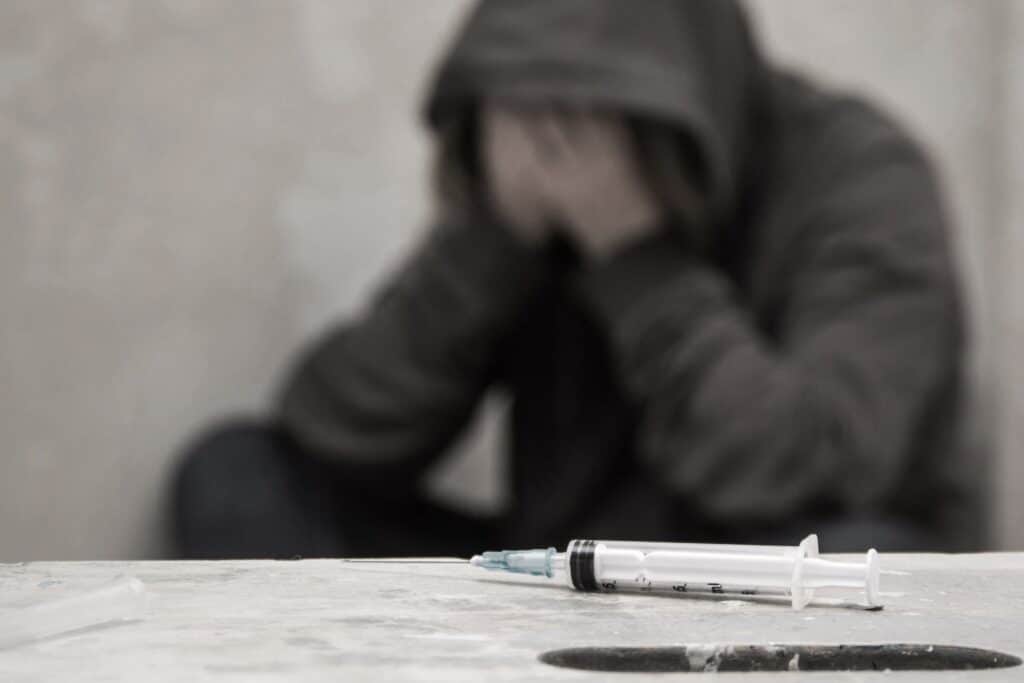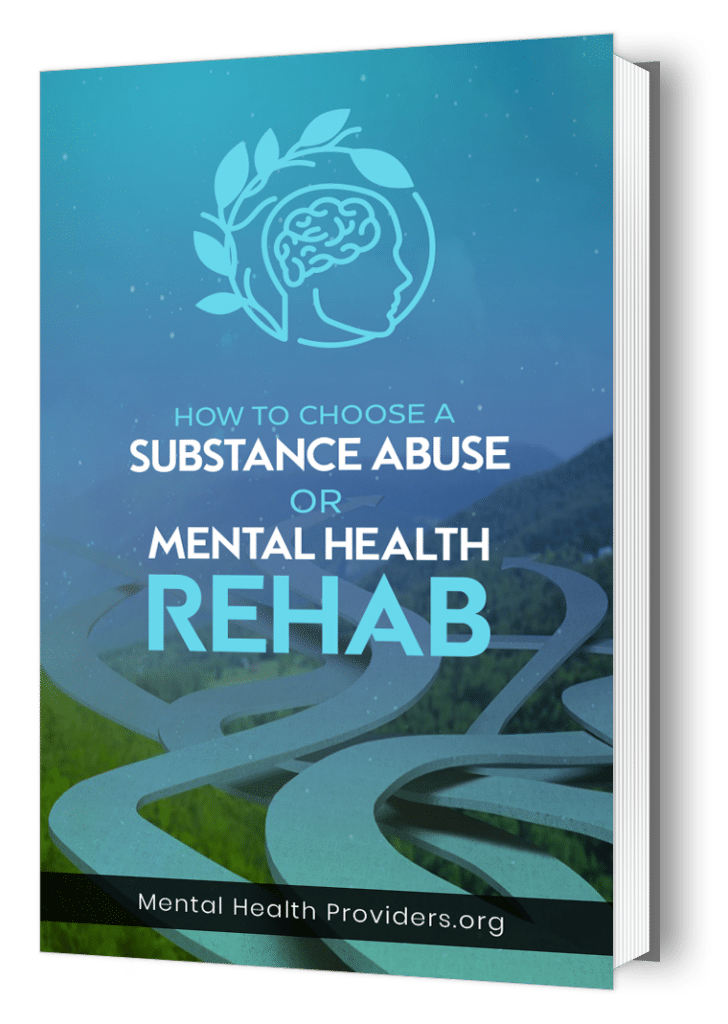
Heroin
- Last Updated: May 19, 2023
Heroin is a highly addictive drug that belongs to the opioid class. It is derived from morphine, a natural substance extracted from the opium poppy plant. Heroin is a powerful pain reliever that binds to opioid receptors in the brain, thereby decreasing pain perception and producing a sense of euphoria. However, the mechanism of action of Heroin also leads to its addictive properties. When someone uses Heroin, the drug floods the brain with dopamine, a neurotransmitter associated with pleasure and reward. This sudden surge of dopamine can reinforce drug use, making the person crave more of the drug to experience the same pleasurable effects. Over time, this can lead to physical and psychological dependence on Heroin.
Heroin addiction can devastate a person’s life, including social isolation, financial problems, and health complications. However, people can recover and regain control of their lives with the proper care and resources. However, various effective treatments are available to help people recover from Heroin addiction. These can include medications such as methadone or buprenorphine, which can help manage withdrawal symptoms and reduce cravings, as well as behavioral therapies such as Cognitive-Behavioral Therapy (CBT) and contingency management. Treatment programs can also include support groups, individual counseling, and holistic therapies such as yoga or acupuncture. If you or someone you know is interested a pursuing a Heroin Addiction Treatment program, you can access our treatment portal to find providers near your zip code.
What is Heroin Abuse?
Heroin Abuse is the use of drug in a manner that is not prescribed or intended by a healthcare professional. It is a severe problem that can lead to addiction, overdose, and other health complications. Heroin Abuse often starts with casual use but can quickly escalate into dependence and addiction due to the drug’s powerful effects.
Heroin Abuse can take many forms. Some people may snort or smoke the drug, while others inject it directly into their veins. The route of administration can impact the intensity and duration of the drug’s effects, as well as the risk of overdose and other complications.
Heroin Abuse can negatively affect a person’s physical and mental health. The drug can cause respiratory depression, leading to oxygen deprivation and brain damage. It can also cause heart problems, infections, and other severe health conditions. Additionally, Heroin Abuse can impact a person’s social and economic well-being, leading to job loss, financial instability, and strained relationships.
If you or someone you know is struggling with Heroin Abuse, it is critical to seek professional help. Treatment for Heroin Abuse typically involves a combination of medication-assisted treatment (MAT), counseling, and support from healthcare professionals and support groups. MAT may include medications like methadone, buprenorphine, or naltrexone, which can help manage withdrawal symptoms and reduce cravings. Counseling can help individuals develop coping mechanisms to address the underlying issues contributing to their addiction. Support groups, such as Narcotics Anonymous, can provide a sense of community and support for people in recovery.
Heroin Abuse is a severe problem that can have devastating consequences for individuals and their loved ones. However, with the right help and resources, it is possible to overcome Heroin addiction and regain control of your life. If you or someone you know is struggling with Heroin Abuse, don’t hesitate to seek help.
Symptoms of Heroin Abuse
- Euphoria
- Constricted pupils
- Slow and shallow breathing
- Nodding off or falling asleep suddenly
- Slurred speech
- Itching or scratching
- Flushed skin
- Decreased appetite
- Constipation
- Poor hygiene
- Neglecting responsibilities or obligations
- Changes in mood or behavior, such as irritability, depression, or anxiety
- Increased tolerance, requiring higher doses to achieve the same effects
- Withdrawal symptoms when trying to quit or cut back on Heroin use, such as nausea, vomiting, sweating, muscle aches, and cravings.
Signs of Heroin Abuse
- Paraphernalia such as syringes, needles, spoons, lighters, and burnt foil
- Burn marks or track marks on the skin
- Missing or stolen prescription drugs or money
- Social isolation or withdrawing from family and friends
- Decreased performance at work or school
- Financial difficulties or stealing to support drug use.
The symptoms of Heroin Abuse are the physical and psychological effects that Heroin has on the user. In contrast, the signs of Heroin Abuse are the observable behaviors or physical evidence that a person is using Heroin. Identifying both symptoms and symbols can help recognize if someone is struggling with Heroin Abuse and can help prompt them to seek professional help.
Heroin Rehab Treatment Options
Outpatient Heroin Treatment: Outpatient treatment allows patients to receive treatment while maintaining their daily responsibilities. It typically includes therapy, counseling, and support groups. Outpatient treatment can be a good option for individuals with a robust support system who are highly motivated to overcome their addiction. However, it may not be the best choice for those with severe addiction or co-occurring mental health disorders. In that case, Inpatient treatment might be the best option.
Inpatient Heroin Treatment: Inpatient treatment involves staying at a treatment center for more than a week, typically ranging from a few weeks to several months. Inpatient treatment provides a highly structured environment with 24/7 medical and emotional support. It can be a good option for individuals who need a high level of care or who have tried outpatient treatment without success.
Medication-Assisted Treatment (MAT): MAT involves using medication, such as methadone or buprenorphine, to help manage withdrawal symptoms and cravings. MAT is often combined with counseling and behavioral therapies. It can be an effective treatment option for individuals with severe addiction or those who have experienced multiple relapses.
Cognitive-Behavioral Therapy (CBT): CBT is a type of therapy that focuses on changing negative thought patterns and behaviors. CBT can be effective in helping individuals with Heroin addiction identify triggers and develop coping mechanisms to avoid relapse. Call for Immediate Assistance1-888-546-6005
Your Recovery Starts Today!
Frequently Asked Questions About Heroin
Heroin addiction is a serious and complex problem that requires professional treatment. There are several options available for treating Heroin addiction, including:
- Medication-Assisted Treatment (MAT) involves using medications such as methadone, buprenorphine, and naltrexone to help manage withdrawal symptoms and cravings.
- Behavioral therapies involve counseling and therapy to help individuals understand and change the behaviors that lead to drug use. Cognitive-behavioral therapy (CBT), contingency management, and motivational interviewing are some examples of behavioral therapies that are effective for Heroin addiction.
- Inpatient Heroin Treatment involves residential treatment programs where individuals receive 24-hour care and support. This can be especially helpful for individuals with severe addiction or co-occurring mental health disorders.
- Outpatient Heroin Treatment involves attending regular counseling sessions and group therapy while living at home. This can be a good option for individuals who have a robust support system and are motivated to stay sober.
- Self-help groups, such as Narcotics Anonymous (NA), support and encourage others who have experienced addiction and are recovering.
It’s important to remember that there is no one-size-fits-all approach to treating Heroin addiction. The best treatment plan will depend on the individual’s unique needs and circumstances. It’s recommended to consult with a healthcare professional or addiction specialist to determine the most appropriate treatment plan.
Symptoms of Heroin Abuse
- Euphoria
- Constricted pupils
- Slow and shallow breathing
- Nodding off or falling asleep suddenly
- Slurred speech
- Itching or scratching
- Flushed skin
- Decreased appetite
- Constipation
- Poor hygiene
- Neglecting responsibilities or obligations
- Changes in mood or behavior, such as irritability, depression, or anxiety
- Increased tolerance, requiring higher doses to achieve the same effects
- Withdrawal symptoms when trying to quit or cut back on Heroin use, such as nausea, vomiting, sweating, muscle aches, and cravings.
Yes, Heroin is a depressant drug that affects the central nervous system. It belongs to a class of drugs known as opioids, including prescription painkillers like oxycodone and morphine. Heroin works by binding to opioid receptors in the brain and spinal cord, producing a range of effects, including pain relief, sedation, and feelings of euphoria.
As a depressant, Heroin slows down the activity of the central nervous system, which can lead to a range of side effects, including slowed breathing, decreased heart rate, and reduced cognitive function. It can also cause many long-term health problems, including addiction, overdose, and an increased risk of infectious diseases like HIV and hepatitis.
If you seek a genuine answer to this query, there might be a better place. This site is focused on directing those seeking help for addiction in the direction of suitable treatment.
Yes, Heroin can be snorted, although it’s not the most common method. Snorting Heroin involves crushing the drug into a fine powder and inhaling it through the nose. When Heroin is snorted, it is absorbed through the mucous membranes in the nose and then enters the bloodstream. However, snorting Heroin can be particularly dangerous as it can damage the nasal tissues and lead to infections. It can also increase the risk of overdose as the drug is absorbed into the bloodstream more quickly and at higher concentrations. It’s important to note that any use of Heroin carries significant risks and can be extremely harmful to one’s health. If you or someone close to you is struggling with Heroin abuse, it’s important to seek help from a qualified medical professional as soon as possible.
Yes, Heroin is an opioid drug and belongs to the class of drugs known as opiates. Opiates are drugs that are derived from the opium poppy, and they have a powerful pain-relieving effect on the body. Heroin is synthesized from morphine, which is itself an opiate. When Heroin is ingested, it is rapidly metabolized into morphine in the body, where it binds to opioid receptors in the brain and other organs to produce its characteristic effects. Opioids like Heroin can be highly addictive and lead to various adverse health effects, including respiratory depression, overdose, and death.
Heroin typically appears as a white or brown powder or a black, sticky substance commonly known as “black tar” Heroin. The color and texture of Heroin can vary depending on the manufacturing process, purity level, and the presence of additives such as lactose or quinine. Heroin can also be found in capsule or tablet form, although this is less common. It’s important to note that Heroin can be extremely dangerous and addictive, and its use can lead to severe health problems, overdose, and death.
Related Articles

Download Free Guide
Read Mental Health Provider’s comprehensive guide about how to choose a rehab that’s right for you or a loved one. We cover everything from costs to what to expect while in treatment!


